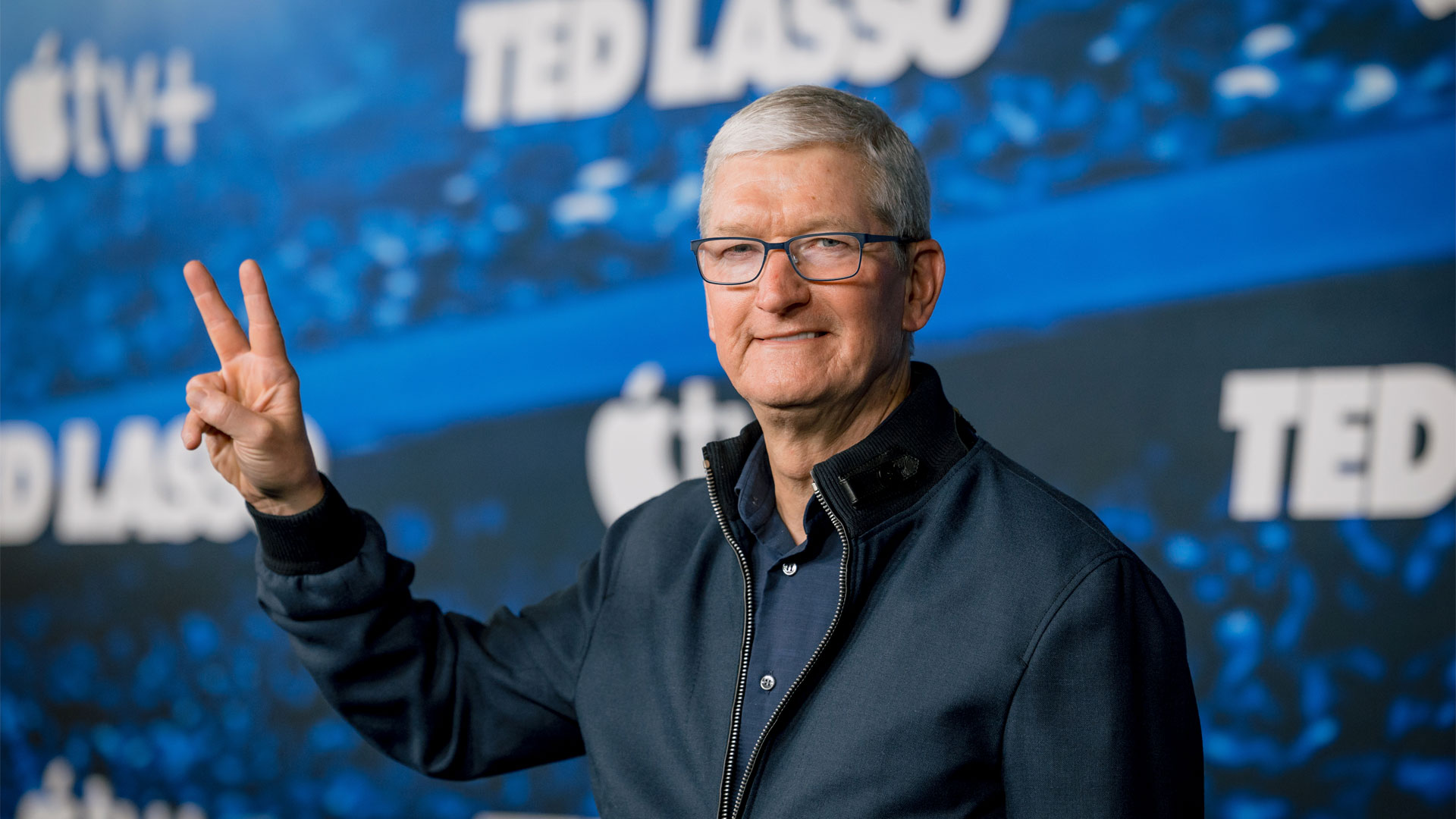Tim Cook's vision for AR/VR is more boring than Meta's, but that's why it might work
Opinion: Simple augmented reality

Tim Cook may end up being the real AR/VR genius and all because he's thinking differently than Meta CEO Mark Zuckerberg.
For Zuckerberg, augmented reality and virtual reality are deeply intertwined with the Metaverse.
Remember when we were all talking about the Metaverse? Okay, maybe not all of us. Maybe not even most of us, but Zuckerberg was consumed with the concept as recently as 2021 when he renamed Facebook Meta to reflect the over-arching Metaverse strategy.
Never one to think small, Zuckerberg explained in a blog post announcing the company's renaming:
The metaverse will feel like a hybrid of today’s online social experiences, sometimes expanded into three dimensions or projected into the physical world. It will let you share immersive experiences with other people even when you can’t be together — and do things together you couldn’t do in the physical world. It’s the next evolution in a long line of social technologies.
Zuckerberg is a little less hot and hyperbolic on the subject of the Metaverse lately. A more recent Facebook post is now steering the team toward the new hot thing, AI.
But with billions of dollars already sunk into his Metaverse dream, Zuckerberg is, for better or worse, irrevocably married to the concept.
The Apple perspective
Unlike the myriad companies who were swept up in Zuckerberg's Metaverse quest, Apple has remained not so much above the fray but operating in a separate universe, maybe the Appleverse.
Apple CEO Tim Cook has never written a full post or given a rousing speech about AR and VR but he has left a breadcrumb trail of ideas over the years about Apple's interest. He's called the technology "important" and even said the company was "high on AR for the long run."
Still, even just two months before WWDC 2023 and on the precipice of what may be the company's biggest product reveal in more than a decade — and one that may deal with AR and VR, no less — Cook seems hesitant to summon up a grand vision for what may turn out to be his signature product.
In a wide-ranging interview with GQ Cook steered clear of pre-announcing anything but said in reference to AR/VR. "It could empower people to achieve things they couldn’t achieve before."
Ooh, now we're off to an exciting start. Sure, Cook won't spill tea on the nitty-gritty details of what might be Apple Glasses or some other form of AR/VR wearable plan, but when you talk about doing something we haven't done before, the next part has to be exciting. Or not.
"We might be able to collaborate on something much easier if we were sitting here brainstorming about it and all of a sudden we could pull up something digitally and both see it and begin to collaborate on it and create with it."
Um, yes, sure, that's something you'd expect to be able to do with AR or even an immersive VR environment. It's also kind of boring. Where are the visions of legless avatars high-fiving on a molten lava landscape, or family members with dinosaur arms parasailing over the red surface of Mars?
Those flights of fantasy, though, are not the Tim Cook we know. He's a pragmatist and his product vision is usually tied to the real world and not a projection of what the mid-21st century might look like through the best AR or VR headset.
This, naturally, is why Cook's vision may ultimately be more compelling and successful than Zukcerbergs's.
Build different
The foundation of the Metaverse was changing everything. Zuckerberg didn't just show us how we'd live in the Metaverse at work. His presentations had us living, working, playing, buying, selling, and surfing a new kind of Internet all through the (not his) Metaverse.
It was an overwhelming vision and one that few consumers could grasp or get excited about.
Maybe Apple and Cook's vision for AR/VR isn't exciting, but it's surely tangible. Apple likes to own the full stack, from chips to hardware and software but the strategy also works because they build nearly perfect platforms for ideas of almost any scale.
Apps on the first iPhone were fairly simple affairs but they've grown in power and complexity in answer to leaps in the iPhone's hardware and OS.
Apple's AR/VR plan will be similar. A robust hardware and software platform that will include some basic features but also support third-party apps that will slowly extend its capabilities. I don't expect major leaps here (maybe it won't replace TVs right away) but the early apps should be effective enough to create some baseline FOMO for people who don't yet own Apple's AR/VR hardware.
It's a simple, straightforward plan that works to Apple and Tim Cook's strengths. This will be an important product but it won't be propped up with empty promises and hyperbole. Instead, Cook will explain it simply and let the technology speak for itself - in a normal tone of voice, of course,
Get daily insight, inspiration and deals in your inbox
Sign up for breaking news, reviews, opinion, top tech deals, and more.

A 38-year industry veteran and award-winning journalist, Lance has covered technology since PCs were the size of suitcases and “on line” meant “waiting.” He’s a former Lifewire Editor-in-Chief, Mashable Editor-in-Chief, and, before that, Editor in Chief of PCMag.com and Senior Vice President of Content for Ziff Davis, Inc. He also wrote a popular, weekly tech column for Medium called The Upgrade.
Lance Ulanoff makes frequent appearances on national, international, and local news programs including Live with Kelly and Mark, the Today Show, Good Morning America, CNBC, CNN, and the BBC.